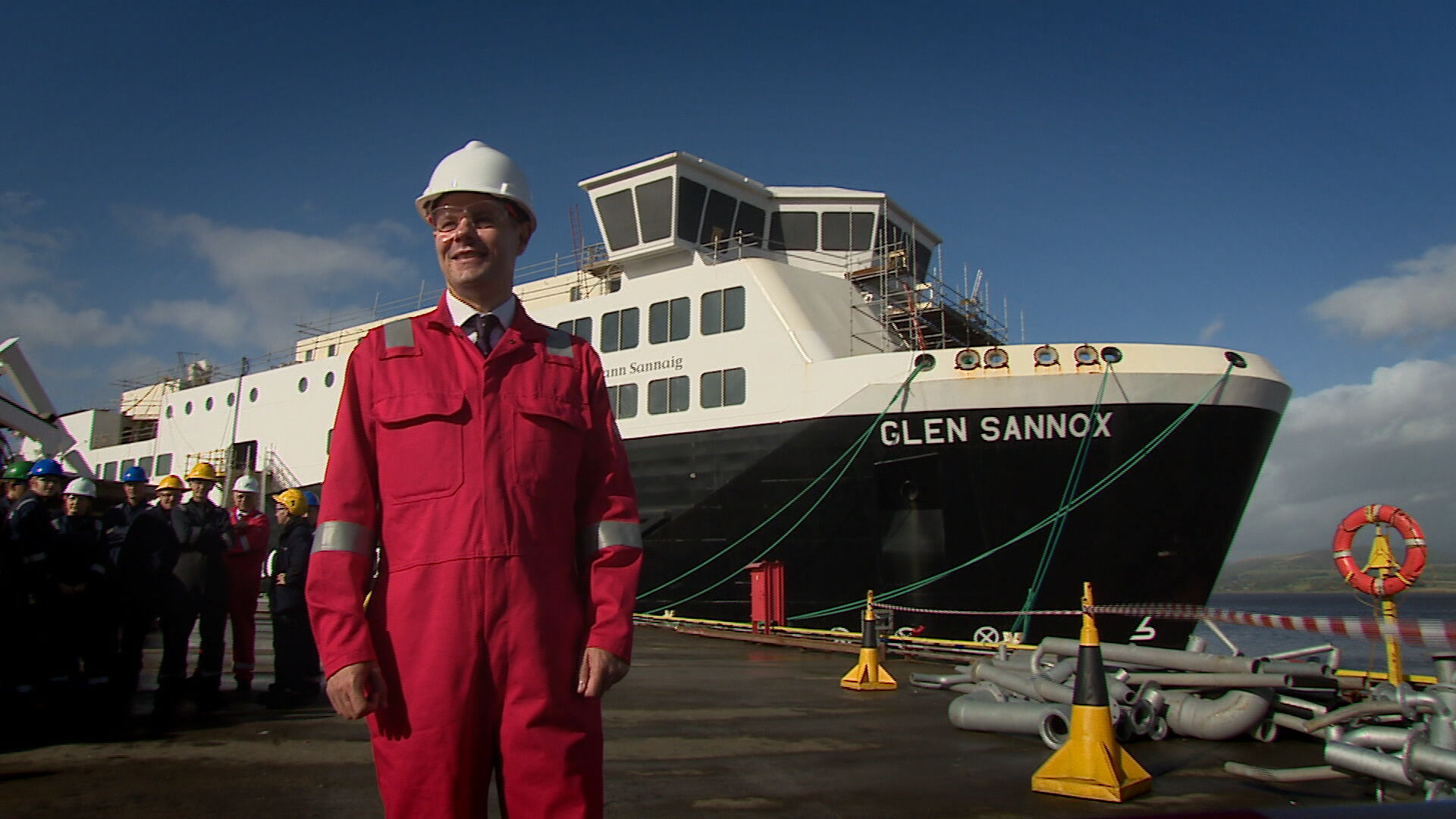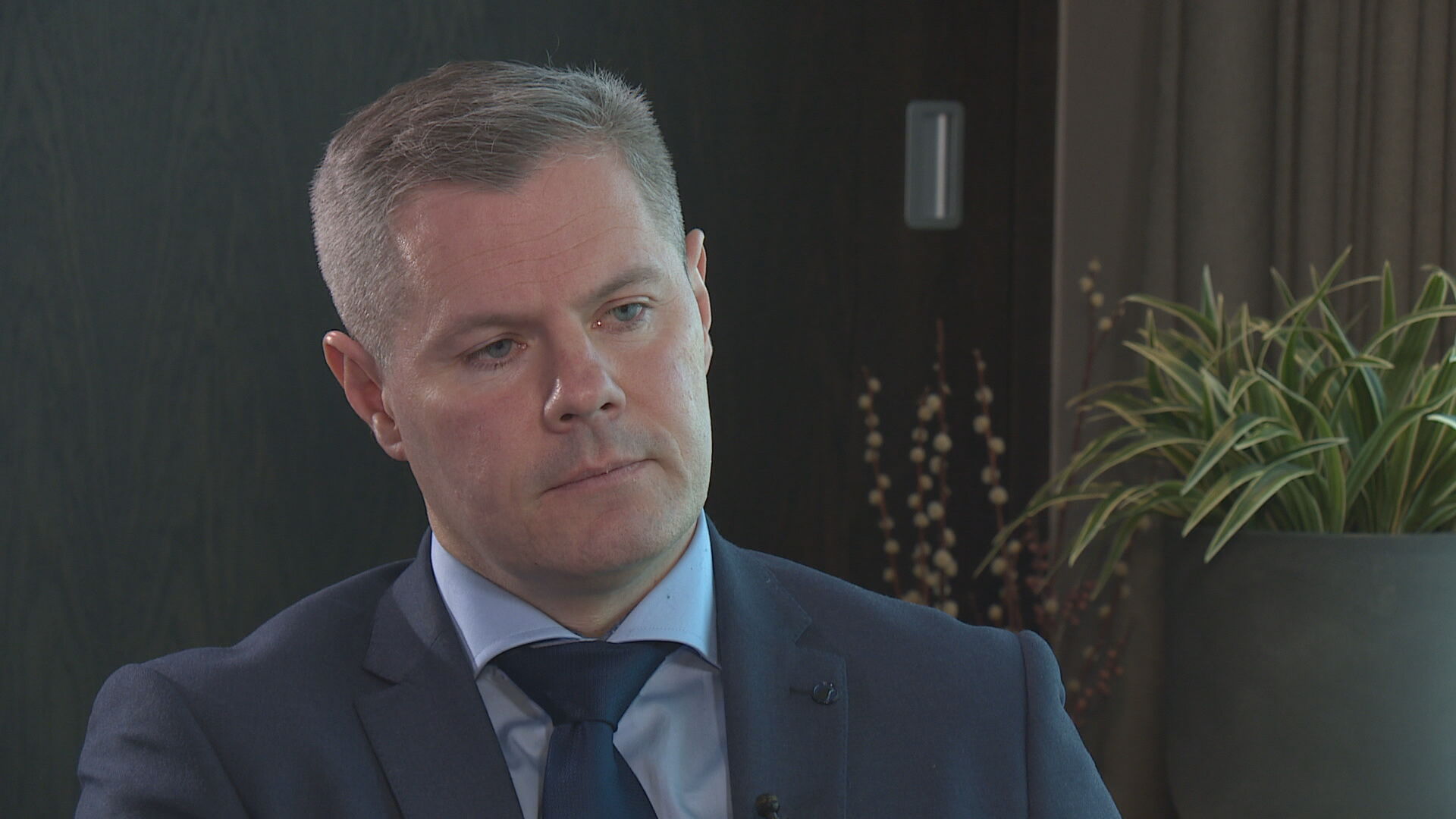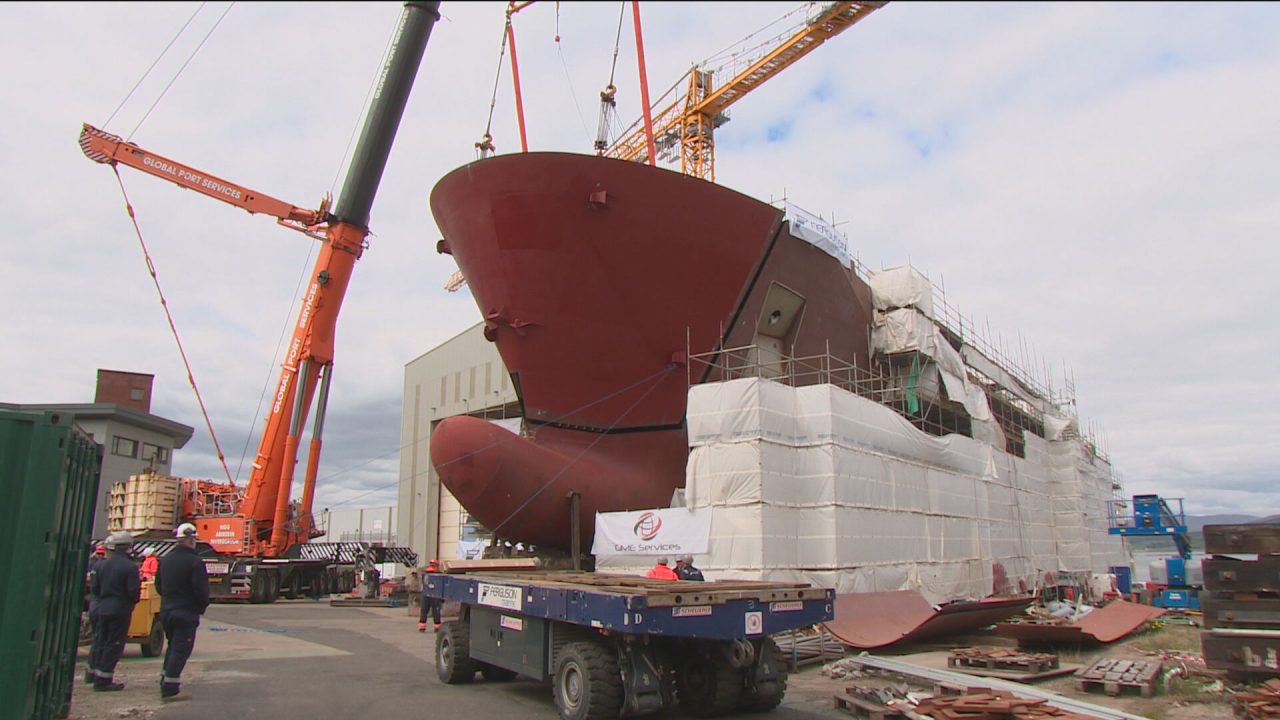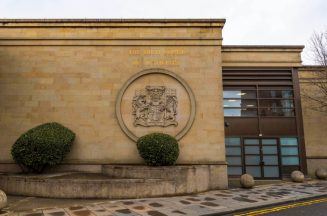In the coming weeks, the Scottish Parliament’s public audit committee will report on how the commissioning of two lifeline ferries at the Ferguson Shipyard on the lower Clyde managed to go so catastrophically over budget.
I await their findings with interest, but having listened to the key players in this financial scandal I will be surprised if they manage to pin the blame for the fiasco on any one individual or any one public body.
The MSPs who have been ingesting hundreds of documents and listening to all the key players must reconcile what at times has amounted to contradictory positions.
As is the case with such committees, their fact-finding objective is often trumped by the need to indict political opponents for being asleep at the wheel. For that reason, I expect that any report may well split along party lines.
Opposition MSPs are likely to observe a financial scandal has played out in front of minsters and yet no-one has resigned.
SNP members of the committee are likely to hold to the defence that every decision taken was taken on the best advice available and with the objective of protecting shipbuilding on the Clyde.
The key minister in the timeline to disaster was the former transport and latterly finance secretary Derek Mackay. Mr Mackay resigned as a minister and then quit as an MSP after text messages he sent to a 16-year-old were made public.
 STV News
STV NewsHe appeared before the parliamentary committee, but his evidence was completely overshadowed by the death of the Queen.
Mr Mackay, who is rebuilding his life after his sharp fall from office has, committee evidence aside, maintained a silence on his role in the ferries fiasco.
In part, he has been keen not to reignite any comment on the circumstances of his downfall, which has been painful for him and perhaps even more painful for his loved ones.
But in an interview with STV’s Scotland Tonight, the man once tipped as a future first minister explains in some detail his role in the decision-making process.
His observations do not go much beyond what he told MSPs, but some of his remarks are fascinating in that they shine a light on the minutiae of decision making within government.
The first area I cover in the interview is whether the procurement process, run by CMAL and with the contract awarded to Ferguson, was legal.
An excellent BBC Scotland documentary has suggested that the award of the contract breached EU procurement rules as Ferguson was given preferential treatment during the bidding process.
This aspect of the story was largely played away from ministerial desks and the First Minster Nicola Sturgeon has said that colleagues were not aware of any issue to suggest that the process was undertaken improperly.
Whether it was or was not is an issue currently exercising the auditor general, who is examining the kernel of the BBC allegations.
On this issue, Mr Mackay says he would not like to think that CMAL (who deny any impropriety) did anything wrong, but he is equally clear that he believes that they have a case to answer on the potential illegality on how Ferguson came to be awarded the contract.
Ferguson could not provide CMAL with a Builders Refund Guarantee (BRG) which Mr Mackay described as “mandatory” in the procurement process.
But Mr Mackay signed off on a contract where this ‘mandatory’ requirement was missing. It appears that he relied on the advice of officials that he should nevertheless proceed.
Now in the interview he accepts that this ‘mandatory’ requirement is designed to ensure that if the builder defaults, the public purse is protected since the BRG can be called upon to ensure no money is lost.
In a lengthy exchange on this point, Derek Mackay said that in the absence of a BRG, mitigations were put in place by Ferguson with which he and his officials were content.
He argues that effectively imposing a BRG on Ferguson would have had the consequence of closing the yard. If they were disqualified for the lack of a BRG, jobs would be lost.
On the issue of a BRG, I would suggest Mr Mackay is being overly casual in his position. The lack of a BRG effectively transferred risk from the builder to the taxpayer. That is precisely what has happened with disastrous consequences.
Any minister who does not effectively consider worse case scenarios I would suggest is not doing their due diligence. Mr Mackay relies on the defence there was nothing to suggest that Ferguson could not perform the contract.
That with respect is not the point. The BRG is an insurance policy for the public purse against non-performance by a builder. The issue of whether they can or cannot fulfil contractual obligations is an entirely separate matter.
This in a sense is quite simple. If a BRG is in place the risk to the public purse largely disappears. If it’s not in place the risk increases and any minister who signs off on such a decision implicitly accepts that risk.
 STV News
STV NewsMaking the point that a ‘mandatory’ BRG imposed on Ferguson would effectively have closed the yard begs another simple question.
Did politics and the need to respect the nation’s shipbuilding heritage cloud the judgement of ministers?
The government would say emphatically that this is not the case, and that due process was followed at all stages.
I press Mr Mackay on this point and suggest to him (for the purposes of playing devil’s advocate) that politics did indeed cloud the process.
I suggest to him that when Ferguson were awarded ‘preferred bidder status’ it was done for political reasons since the contractual position in relation to the ferries had not fully crystallised. I suggest to him that this decision was premature, but it is one that he disagreed with.
He attributes the disaster to “contract failure” and cites the dysfunctional relationship between the procurement agency CMAL and the builders Ferguson as key in helping to explain the scale of the cost over runs.
Derek Mackay insists that there is no one person at fault.
There are shades here of the late Lord Fraser’s report into the Holyrood building fiasco. After a public inquiry into the cost over-runs in the building of the Scottish Parliament, he concluded that there was “no single villain of the piece”.
Mr Mackay pulls back from a suggestion that CMAL are not fit for purpose although he definitively concludes that the totality of the relationships in Scotland’s transport landscape are indeed not fit for purpose.
At present with regard to ferry procurement, Transport Scotland, CMAL and the government sit in a tripartite relationship which the former minister clearly believes is in need of reform.
I will give one firm prediction, once the dust settles on the ferries fiasco, the current arrangements will not last.
In my opinion, Mr Mackay is at his weakest in the interview in not being sufficiently contrite for something that has denied the public purse of much needed funds.
Indeed, at one point in the interview he asks me, why is this a scandal?
That he should even need to pose the question would suggest that on occasions politicians simply don’t get it. But as Mr Mackay emphasises, he is no longer a politician.
His final words in the interview are “we can agree it is a scandalous state of affairs”.
Indeed, it is, but to date no resignations have been forthcoming for this scandalous state of affairs.
It’s the kind of stuff that scunners the public and reduces faith in those who govern.
Full interview and analysis on Scotland Tonight on STV and the STV Player at 10.40pm on Wednesday, January 11.
Follow STV News on WhatsApp
Scan the QR code on your mobile device for all the latest news from around the country


 STV News
STV News

























